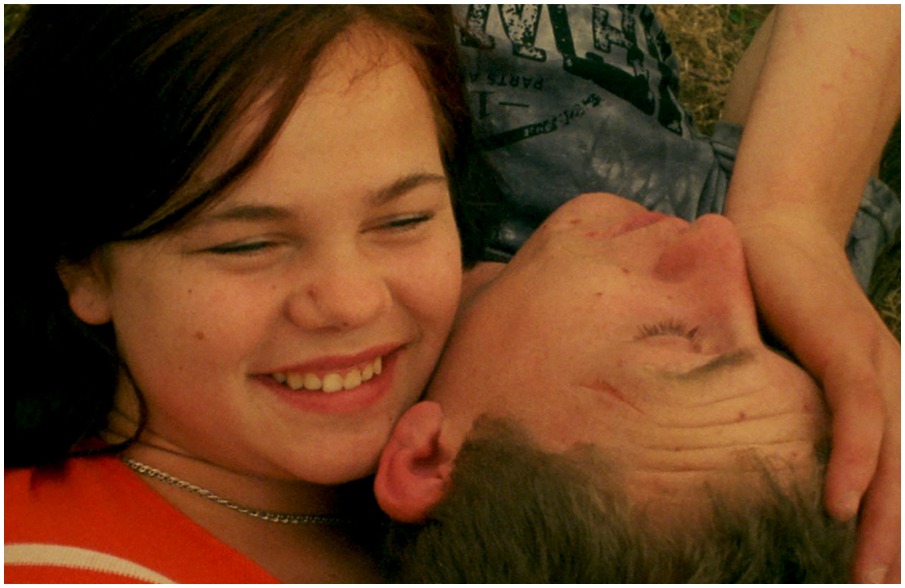Venezia 82: International Juries Announced for the 2025 Venice Film Festival
The juries for the 82nd Venice International Film Festival have been announced. Alexander Payne, Julia Ducournau, and Charlotte Wells will preside over the main sections.
Listeners:
Top listeners:
 play_arrow
play_arrow
ENGLISH Channel 01 If English is your language, or a language you understand, THIS IS YOUR CHANNEL !
 play_arrow
play_arrow
ITALIAN Channel 02 Se l’italiano è la tua lingua, o una lingua che conosci, QUESTO È IL TUO CANALE!
 play_arrow
play_arrow
EXTRA Channel 03 FRED Film Radio channel used to broadcast press conferences, seminars, workshops, master classes, etc.
 play_arrow
play_arrow
GERMAN Channel 04 Wenn Ihre Sprache Deutsch ist, oder Sie diese Sprache verstehen, dann ist das IHR KANAL !
 play_arrow
play_arrow
POLISH Channel 05
 play_arrow
play_arrow
SPANISH Channel 06 Si tu idioma es el español, o es un idioma que conoces, ¡ESTE ES TU CANAL!
 play_arrow
play_arrow
FRENCH Channel 07 Si votre langue maternelle est le français, ou si vous le comprenez, VOICI VOTRE CHAINE !
 play_arrow
play_arrow
PORTUGUESE Channel 08
 play_arrow
play_arrow
ROMANIAN Channel 09 Dacă vorbiţi sau înţelegeţi limba română, ACESTA ESTE CANALUL DUMNEAVOASTRĂ!
 play_arrow
play_arrow
SLOVENIAN Channel 10
 play_arrow
play_arrow
ENTERTAINMENT Channel 11 FRED Film Radio Channel used to broadcast music and live shows from Film Festivals.
 play_arrow
play_arrow
BULGARIAN Channel 16 Ако българският е вашият роден език, или го разбирате, ТОВА Е ВАШИЯТ КАНАЛ !
 play_arrow
play_arrow
CROATIAN Channel 17 Ako je hrvatski tvoj jezik, ili ga jednostavno razumiješ, OVO JE TVOJ KANAL!
 play_arrow
play_arrow
LATVIAN Channel 18
 play_arrow
play_arrow
DANISH Channel 19
 play_arrow
play_arrow
HUNGARIAN Channel 20
 play_arrow
play_arrow
DUTCH Channel 21
 play_arrow
play_arrow
GREEK Channel 22
 play_arrow
play_arrow
CZECH Channel 23
 play_arrow
play_arrow
LITHUANIAN Channel 24
 play_arrow
play_arrow
SLOVAK Channel 25
 play_arrow
play_arrow
ICELANDIC Channel 26 Ef þú talar, eða skilur íslensku, er ÞETTA RÁSIN ÞÍN !
 play_arrow
play_arrow
INDUSTRY Channel 27 FRED Film Radio channel completely dedicated to industry professionals.
 play_arrow
play_arrow
EDUCATION Channel 28 FRED Film Radio channel completely dedicated to film literacy.
 play_arrow
play_arrow
SARDU Channel 29 Si su sardu est sa limba tua, custu est su canale chi ti deghet!
 play_arrow
play_arrow
“Conversation with” at the 20th Marrakech IFF, interview with actor Willem Dafoe Bénédicte Prot

PODCAST| Matt Micucci interviews Anna Eborn, director of the documentary Transnistra.
An interview with director Anna Eborn, whose film Transnistra had its world premiere at the 2019 International Film Festival Rotterdam. For a year, Eborn followed and filmed a group of young people in their late teens, living in the tiny, unrecognized state of Transnistra, which split from Moldova in 1992 (although it is still officially recognized by the UN as part of Moldova). The director tells us about the contrast of old and new in her film, of being fascinated about hearing of the place during the making of the previous film and then once she saw it with her own eyes, and of “street casting” her protagonists, being particularly taken by the energy of one of them, Tanya. We also discuss the power of 16mm and how the technique of filming on 16mm, as she says, “just suits her.”
Transnistra: Dreamy documentary about the inner lives of underprivileged teens in Transnistria, an area that unilaterally declared independence from Moldova after the collapse of the Soviet Union, but remains unrecognised. Although ostensibly this declaration was occasioned by unity between the inhabitants, there is little evidence of this. Swedish director Anna Eborn reveals the uncertainty among youngsters. Should they stay or leave? Do they even have the money to do so? Transnistra focuses on the daily lives of six teens. Tanya plays the field with her male friends while she has a boyfriend abroad. She takes the boys into nature or to dilapidated tower blocks for brief trysts or to have good company. Combined with sensual music, Eborn’s intimate shots suggest this idyll is fleeting. Life is extra evanescent in a non-existent country.
Written by: fredfilmradio
Anna Eborn International Film Festival Rotterdam Matt Micucci Transnistra
Film
TransnistraFestival
Rotterdam Film FestivalNo related posts.
The juries for the 82nd Venice International Film Festival have been announced. Alexander Payne, Julia Ducournau, and Charlotte Wells will preside over the main sections.
100 Litres of Gold – Director Teemu Nikki dives into sahti, sisterhood, and black comedy. A wild brew of laughs, love, and tradition.
Michel Franco about "Dreams" : 'When the father says "It’s okay to help immigrants, but there are limits," that’s the biggest question in the film: can people [from different contexts] truly see each other as equals?'
"Future Future" director Davi Pretto: 'The apocalypse is not what Hollywood says it is, a huge bang. That's not the apocalypse. The apocalypse is happening every day.'





© 2023 Emerald Clear Ltd - all rights reserved.